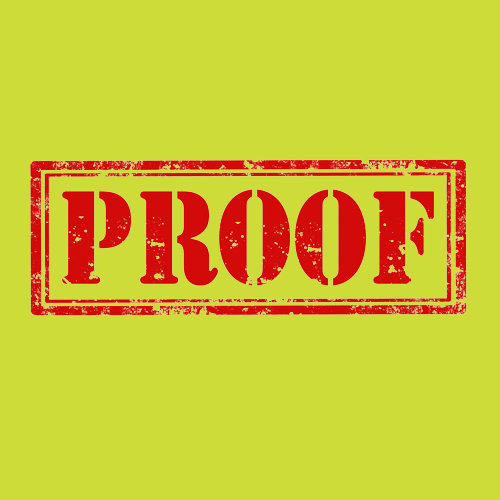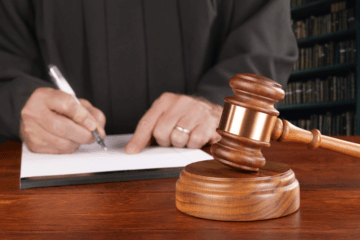
This Article is submitted by Aryan Raj Singh, 2nd semester B.COM. LL. B student of Guru Ghasidas Vishwavidyalaya
Abstract:
The concept of cognizance and proof lies at the heart of legal systems worldwide, shaping the outcomes of legal proceedings and the administration of justice. This article explores the intricate relationship between cognizance and proof law, highlighting their interconnectedness and influence on legal decision-making. Cognizance refers to the court’s jurisdiction and authority to hear and determine a case. It encompasses the court’s ability to acquire knowledge and comprehend the relevant facts and legal principles involved. Proof law, on the other hand, pertains to the rules and standards governing the establishment of factual truth or legal claims during a trial or legal dispute. By delving into the interplay between cognizance and proof law, this article aims to shed light on how legal systems navigate the complexities of gathering evidence, evaluating its admissibility, and determining its probative value. It explores the fundamental principles and burden of proof, including the concepts of preponderance of evidence, clear and convincing evidence, and beyond a reasonable doubt.
Furthermore, the article examines the challenges inherent in striking a balance between cognizance and proof law, particularly in cases where the availability or reliability of evidence is limited. It delves into the evolving nature of proof in the digital age, considering the implications of technological advancements such as electronic records, data privacy, and the use of artificial intelligence in evidence gathering and analysis. Drawing upon legal precedents and scholarly analysis, this article provides insights into the evolution of cognizance and proof law, considering how societal and technological developments have shaped the standards of legal decision-making. It also addresses the implications of these developments on the fairness and efficiency of legal proceedings, including issues related to access to justice, the burden of proof, and the role of expert witnesses.
Keywords:
Cognizance, Proof law, Legal proceedings, Jurisdiction, Authority, Evidence, Admissibility, Probative value, Burden of proof, Preponderance of evidence
Introduction:
Cognizance and proof are two fundamental concepts that shape the outcomes of legal proceedings and play a pivotal role in the administration of justice. Cognizance refers to a court’s jurisdiction and authority to hear and determine a case, while proof law governs the rules and standards for establishing factual truth or legal claims during legal disputes. The interplay between cognizance and proof is crucial in determining the admissibility and weight of evidence presented in court, and it has far-reaching implications for the fairness and reliability of legal decision-making. In legal proceedings, cognizance encompasses the court’s ability to acquire knowledge and comprehend the relevant facts and legal principles involved in a case. It ensures that the court has the necessary jurisdiction to hear and decide upon the matter at hand. Without proper cognizance, a court lacks the authority to make binding decisions, leading to a breakdown in the legal process.
Proof law, on the other hand, establishes the framework for evaluating the evidence presented in court. It defines the burden of proof that parties must meet to establish their claims or defences. The burden of proof varies depending on the nature of the case and the jurisdiction, ranging from the preponderance of evidence standard in civil cases to the beyond a reasonable doubt standard in criminal cases. Proof law also governs the admissibility of evidence, ensuring that only relevant and reliable evidence is considered in the decision-making process. The relationship between cognizance and proof law is dynamic and interconnected. Cognizance provides the foundation for the court’s jurisdiction and authority, enabling it to exercise its power to admit and evaluate evidence. Conversely, proof law influences the court’s cognizance by defining the standards and criteria for accepting evidence and determining its probative value. The court’s ability to properly exercise cognizance relies on its understanding and application of proof law. Advancements in technology and the digital age have introduced new challenges and considerations in the realm of cognizance and proof law. Electronic records, data privacy concerns, and the use of artificial intelligence in evidence gathering and analysis have reshaped the way evidence is presented and evaluated in court. These developments require courts to adapt their cognizance and proof frameworks to ensure fairness, accuracy, and efficiency in legal proceedings.
Concept of Cognizance and Proof:
Cognizance and proof are fundamental concepts in the realm of law, intricately intertwined and integral to the administration of justice. Cognizance refers to the court’s jurisdiction and authority to hear and decide upon a case. It encompasses the court’s ability to acquire knowledge, understand the relevant legal principles, and comprehend the facts presented before it. Cognizance establishes the court’s power to exercise its judicial function and renders its decisions binding. On the other hand, proof pertains to the rules and standards employed in establishing the truth or validity of claims. It encompasses the burden of proof that parties bear to substantiate their arguments and convince the court of the merits of their case. Proof provides the framework for evaluating and assessing the evidence presented, ensuring that decisions are based on solid evidentiary foundations rather than conjecture or mere assertions. The relationship between cognizance and proof is symbiotic, as cognizance enables the court to exercise its jurisdiction and assess the admissibility and weight of evidence, while proof guides the court’s assessment of the evidence and informs its decision-making process. The proper understanding and application of cognizance and proof are crucial for upholding the principles of fairness, due process, and the pursuit of truth within legal proceedings.
Significance of Cognizance and Proof:
The significance of cognizance and proof in legal proceedings cannot be overstated. These concepts form the bedrock of the justice system, ensuring fair and just outcomes in legal disputes. Understanding their significance is essential for legal professionals, policymakers, and individuals seeking justice.
- Preserving the Rule of Law: Cognizance and proof are fundamental to upholding the rule of law. Cognizance ensures that cases are heard and decided by a court with the appropriate jurisdiction and authority, maintaining the integrity and legitimacy of the legal process. Proof law establishes the standards and rules for establishing the truth or validity of claims, ensuring that decisions are based on evidence and reasoned analysis rather than conjecture or bias.
- Establishing Factual Truth: Cognizance and proof are instrumental in determining factual truth in legal proceedings. The court’s cognizance allows it to consider and evaluate the evidence presented by the parties involved, enabling the establishment of the truth of the matter at hand. Proof law provides the criteria and burden of proof standards that parties must meet to convince the court of the truth of their claims or defences.
- Ensuring Fairness and Due Process: Cognizance and proof are essential for ensuring fairness and due process in legal proceedings. Cognizance ensures that cases are heard by an impartial and competent court, providing a fair opportunity for all parties to present their arguments and evidence. Proof law establishes the burden of proof standards that parties must meet, balancing the interests of the plaintiff and defendant and preventing unjust outcomes.
- Guiding Judicial Decision-Making: Cognizance and proof law serve as guiding principles for judicial decision-making. The court’s cognizance enables it to assess the credibility and relevance of evidence presented, ensuring that only admissible and reliable evidence is considered. Proof law provides the framework for weighing the evidence, determining the probative value of different pieces of evidence, and arriving at a just and reasoned decision.
- Upholding Public Trust and Confidence: The proper application of cognizance and proof law is crucial for upholding public trust and confidence in the justice system. When courts exercise cognizance diligently and apply proof law consistently, it reinforces the perception that legal proceedings are fair, transparent, and based on evidence. This, in turn, strengthens public trust in the justice system and promotes societal adherence to the rule of law.
- Balancing Efficiency and Accuracy: Cognizance and proof law play a vital role in striking a balance between efficiency and accuracy in legal proceedings. Cognizance ensures that cases are heard in a timely manner by the appropriate court, while proof law establishes the standards of evidence necessary to reach accurate and just decisions. Striking this balance is crucial for maintaining public confidence in the efficiency and integrity of the justice system.
In conclusion, cognizance and proof are essential pillars of the legal system, ensuring fairness, truth-seeking, and due process. By understanding the significance of these concepts, legal practitioners and stakeholders can contribute to the ongoing improvement and refinement of the justice system, ultimately strengthening the rule of law and the pursuit of justice.
Relationship Between Cognizance and Proof:
The relationship between cognizance and proof is deeply intertwined, shaping the trajectory of legal proceedings and influencing the outcomes of cases. Cognizance refers to the court’s jurisdiction and authority to hear and determine a case, while proof law encompasses the rules and standards for establishing factual truth or legal claims. These two concepts are inextricably linked, as cognizance enables the court to exercise its authority over a matter, while proof law provides the framework for evaluating and admitting evidence. Cognizance establishes the foundation for legal decision-making by ensuring that the court has the requisite jurisdiction and authority to hear a case. Without proper cognizance, a court lacks the power to render a binding decision. It involves the court’s ability to acquire knowledge and understand the relevant facts and legal principles involved in the case at hand. The court’s cognizance enables it to assess the admissibility of evidence, determine the legal issues at stake, and make informed judgments based on the law and the evidence presented.
Proof law, on the other hand, sets the parameters for evaluating and weighing the evidence presented during legal proceedings. It establishes the burden of proof that parties must meet to establish their claims or defences. The burden of proof can vary depending on the nature of the case and the jurisdiction, ranging from the preponderance of evidence standard in civil cases to the beyond a reasonable doubt standard in criminal cases. Proof law also governs the admissibility of evidence, ensuring that only relevant and reliable evidence is considered by the court. The relationship between cognizance and proof is symbiotic. Cognizance informs the court’s understanding of the legal issues and facts in the case, guiding its evaluation of the evidence. Conversely, proof law influences the court’s cognizance by providing the standards and criteria for admitting and evaluating evidence. The court’s ability to properly exercise cognizance relies on its understanding and application of proof law. Together, these concepts shape the evidentiary landscape of legal proceedings, determining the weight and probative value of the evidence presented and ultimately influencing the court’s decision-making process.
In summary, cognizance and proof are intertwined concepts that govern legal proceedings. Cognizance establishes the court’s jurisdiction and authority, enabling it to acquire knowledge and understand the case at hand. Proof law provides the framework for evaluating evidence and establishing factual truth or legal claims. The interplay between cognizance and proof is crucial in ensuring fair and just outcomes in legal proceedings, guiding the court’s decision-making process and upholding the integrity of the justice system.
Challenges in establishing cognizance:
Establishing cognizance in legal proceedings can present various challenges, requiring careful consideration and analysis. These challenges arise due to jurisdictional complexities, evolving legal principles, and the need to balance efficiency with the pursuit of justice. Some of the key challenges in establishing cognizance are as follows:
- Jurisdictional Ambiguities: Determining the appropriate jurisdiction for a case can be complex, particularly in situations involving multiple parties, international elements, or overlapping legal frameworks. The question of which court has the authority to hear a particular matter may arise, necessitating a thorough analysis of jurisdictional rules, conflicts of laws, and applicable treaties.
- Novel Legal Issues: Emerging legal issues or novel circumstances may pose challenges in establishing cognizance. As societal norms and technologies evolve, courts may encounter cases that push the boundaries of existing legal frameworks. Adapting cognizance to address such novel legal issues requires careful interpretation of laws, precedents, and principles, as well as consideration of the potential impacts on the legal system as a whole.
- Determining Relevance and Standing: Courts must assess whether a party has sufficient legal standing to bring a case before them and whether the issues raised are relevant to the court’s jurisdiction. Evaluating standing and relevance requires a thorough understanding of the parties’ rights, legal principles, and the specific legal framework governing the matter at hand.
- Conflicting Interpretations of Laws: Different interpretations of laws, regulations, or legal principles by various parties can create challenges in establishing cognizance. Courts may need to resolve conflicts in legal interpretations, analyze legislative intent, or seek guidance from higher courts to determine the correct application of the law and establish their jurisdiction.
- Consideration of Forum Non Conveniens: In cases involving multiple jurisdictions, the doctrine of forum non conveniens comes into play. This doctrine allows a court to decline jurisdiction if another forum is more appropriate for the resolution of the dispute. Determining whether a court should decline jurisdiction based on forum non conveniens involves assessing factors such as convenience, fairness, and the availability of an adequate alternative forum.
- Striking a Balance Between Efficiency and Justice: Courts face the challenge of balancing the need for efficient case management with the requirement to ensure a just and fair process. While timely resolution of cases is desirable, rushing the establishment of cognizance without due consideration of the relevant legal issues and evidence may compromise the quality and fairness of the proceedings.
Addressing these challenges requires a judicious application of legal principles, extensive research, consultation with experts, and careful consideration of the unique circumstances of each case. By actively engaging with these challenges, courts can strive to establish cognizance in a manner that upholds the principles of fairness, justice, and the rule of law.
Balancing Cognizance and Proof:
Balancing cognizance and proof is a delicate task within the legal system, requiring courts to navigate the tension between the need for a comprehensive understanding of the case and the requirement for compelling evidence. Cognizance entails the court’s jurisdiction and authority to hear and decide a case, while proof involves establishing the truth or validity of claims through evidentiary support.
On one hand, cognizance ensures that the court has the necessary knowledge and understanding of the legal issues and facts at hand. It enables the court to properly exercise its jurisdiction, assess the admissibility of evidence, and make informed decisions based on the law and the relevant facts. Cognizance provides the context within which proof is evaluated, setting the stage for the court’s analysis of the evidence presented.
On the other hand, proof law sets the standards and criteria for establishing the truth or validity of claims. It requires parties to meet the burden of proof by presenting compelling evidence that supports their assertions. Proof law ensures that decisions are based on substantiated facts rather than mere allegations or conjecture. It provides a framework for evaluating the credibility, relevance, and weight of the evidence presented during legal proceedings. Balancing cognizance and proof require courts to carefully consider the interplay between the two. Courts must have a comprehensive understanding of the case and the relevant legal principles to exercise their cognizance effectively. At the same time, they must rigorously evaluate the evidence presented, ensuring that it meets the applicable standards of proof. The court’s cognizance guides its assessment of the evidence, while proof law informs the court’s determination of the weight and probative value of that evidence.
Striking the right balance between cognizance and proof is crucial for achieving fair and just outcomes in legal proceedings. The court must possess sufficient cognizance to understand the case and the legal principles involved, while giving due weight to the evidence presented by the parties. This delicate balance ensures that decisions are based on a robust understanding of the case and the evidence, promoting the principles of fairness, accuracy, and the pursuit of truth. Ultimately, the harmonious integration of cognizance and proof safeguards the integrity of the legal system, instils public confidence, and upholds the principles of justice. By maintaining a careful balance between these two elements, courts can ensure that legal proceedings are conducted with fairness, rigor, and adherence to the rule of law.
CASES RELATED TO COGNIZANCE AND PROOF:
- State of Uttar Pradesh v. Deoman Upadhyaya (1961): In this case, the Supreme Court of India emphasized the importance of the court’s cognizance in criminal proceedings. The court held that cognizance is taken when the court applies its mind to the facts alleged in the complaint and decides to initiate criminal proceedings.
- R. v. Bala (2015): This Canadian case dealt with the issue of proof in criminal trials. The Supreme Court of Canada clarified the standard of proof required for the defense of duress. The court held that the defense must establish on a balance of probabilities that the accused committed the offense under the compulsion of threats that left no reasonable avenue of escape.
- Miranda v. Arizona (1966): This landmark United States Supreme Court case addressed the issue of proof in criminal trials and the protection of individual rights. The court held that the prosecution must prove that a defendant’s confession was voluntary and obtained after the defendant was informed of their constitutional rights, including the right to remain silent and the right to an attorney.
- R. v. Oakes (1986): In this Canadian case, the Supreme Court of Canada established the “Oakes test” for determining the constitutionality of legislation under the Canadian Charter of Rights and Freedoms. The court held that the government must establish that the limitation on rights is justified by a pressing and substantial objective and that the means used to achieve that objective are proportional and reasonable.
- Daubert v. Merrell Dow Pharmaceuticals, Inc. (1993): This influential United States Supreme Court case dealt with the admissibility of scientific evidence. The court held that trial judges have a gatekeeping role in determining the admissibility of scientific evidence, applying certain criteria such as whether the scientific theory or technique has been tested, subjected to peer review, has a known error rate, and is generally accepted in the scientific community.
These cases illustrate the importance of cognizance and proof in legal proceedings, showcasing the principles and standards applied by courts in assessing evidence, determining jurisdiction, and safeguarding individual rights. They provide valuable precedents that shape the understanding and application of cognizance and proof in various legal systems.
Conclusion:
In conclusion, cognizance and proof are two foundational concepts within the legal system that are essential for the administration of justice. Cognizance ensures that cases are heard by the appropriate court with the necessary jurisdiction and authority, while proof law establishes the standards and criteria for establishing factual truth or legal claims through evidentiary support. The significance of cognizance and proof lies in their ability to preserve the rule of law, establish factual truth, ensure fairness and due process, guide judicial decision-making, uphold public trust and confidence, and balance efficiency with accuracy.
However, establishing cognizance can be challenging due to jurisdictional ambiguities, novel legal issues, conflicting interpretations of laws, and the need to strike a balance between efficiency and justice. These challenges necessitate careful analysis, interpretation of laws, and consideration of the unique circumstances of each case. The relationship between cognizance and proof is symbiotic, with cognizance providing the context for evaluating evidence and proof law guiding the court’s analysis of the evidence. Balancing cognizance and proof require courts to have a comprehensive understanding of the case and the relevant legal principles, while rigorously evaluating the evidence presented. Ultimately, the harmonious integration of cognizance and proof safeguards the integrity of the legal system, upholds the principles of fairness and the pursuit of truth, and promotes public confidence in the administration of justice. By understanding the significance of these concepts and addressing the challenges involved, legal professionals and stakeholders can contribute to the ongoing improvement and refinement of the justice system, reinforcing the principles of fairness, justice, and the rule of law.
References:
https://www.legalservicesindia.com/article/2499/Cognizance-by-a-Magistrate:-Meaning-and-Concept.html
https://indiankanoon.org/doc/11884105/
https://www.soolegal.com/roar/cognizance-of-offences-under-code-of-criminal-procedure
https://timesofindia.indiatimes.com/readersblog/lawpedia/burden-of-proof-46697/
CITATIONS:
___________________
- State of Uttar Pradesh v. Deoman Upadhyaya (1961)
- R. v. Bala (2015)
- Miranda v. Arizona (1966)
- R. v. Oakes (1986)
- Daubert v. Merrell Dow Pharmaceuticals, Inc. (1993)




0 Comments